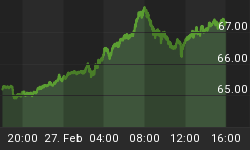There is a popular belief in the Middle East that Washington's foreign policy, particularly as it relates to this precarious region, is largely driven by America's dependency on, and insatiable appetite for Arab oil. One can make a good argument for that.
Had Syria been a major oil producing country chances are the US would have already dispatched military forces to impose a pax Americana and to put a stop to the horrific fighting that has been slowly, but without any doubt, ripping Syria apart and dismantling the infrastructures that make the Syrian state what it is today. Even if the war was to end today it would take years for Syria to return to its pre-war position from an economic and military perspective.
Some analysts believe that oil is what drove the United States to become militarily involved in Kuwait in 1990-91, in Iraq in 2003 and more recently in Libya.
Asides from some stealth behind the scenes support to a few of the many rebel groups engaged in the conflict that has been forthcoming in the form of weapons (mostly light weapons) and some intelligence delivered to a handful of the multitude of forces demanding the departure of Syrian President Bashar Assad, the US-NATO-Saudi-Qatari alliance has refrained from moving to the next step; full scale military intervention. Last week the Qataris made some attempts at the UN General Assembly in New York to drum up support for an Arab military intervention in Syria but that did not seem to take any traction with other Arab countries.
In the 18 months since the Syrian strife began in earnest human rights groups claim that some 30,000 people have been killed so far and some 350,000 Syrians have fled their country seeking refuge in Turkey, Iraq, Jordan and Lebanon. If the current pace of refugees continues - and there is nothing to indicate it will abate anytime soon -- human rights groups and the UN relief agencies anticipate that number to jump to a staggering 700,000 people by the end of this year. In a country with a total population of some 20 million, those are frightful numbers. Those are frightful numbers by any means and with winter just around the corner the fate of the refugees becomes even more concerning.
While Syria may not be a major oil producer, it does however have some oil, though not abundantly, therefor placing the country in a non-strategic second-tier position, as far as the interests of the United States and its allies in the region are concerned. Nevertheless, it is Syria's geographic location on the old caravan route between Turkey and Arabia, or as it used to be known in the days of old, between Constantinople and the Hijaz -- that still holds the same strategic importance today as it did in the days of the caravan trains.
The names on the maps may have changed, Constantinople becoming Istanbul and the Hijaz, the Kingdom of Saudi Arabia, but very little else has changed in the end game except for the caravans giving way to trade routes and oil pipelines. And unless the geography of the region can change (unlikely), Syria remains very much the pathway to the Arab hinterland.
During the last several decades Lebanon and Turkey have been described as gateways to the Middle East. And indeed, they often are. However, it is important to remember that just as double security doors that one finds in many banks where customers enter the establishment through two sets of doors, where the first set needs to shut before the second set can be opened, Syria plays the same role in the region today. Lebanon and Turkey may be the "gateways" to the Levant and beyond, however in both instances the next overland point for any overland traveller or goods goes obligatory through Syria. If people have to travel through Syrian territory to get to/from points beyond these traditional "gateways," then so do goods and natural resource such as oil and natural gas pipelines.
Understand that and you can begin to understand part of the on-going conflict in the Middle East today.
Source: http://oilprice.com/Energy/Crude-Oil/What-Impact-does-Oil-have-on-the-Syrian-Civil-War.html
By. Claude Salhani for Oilprice.com















